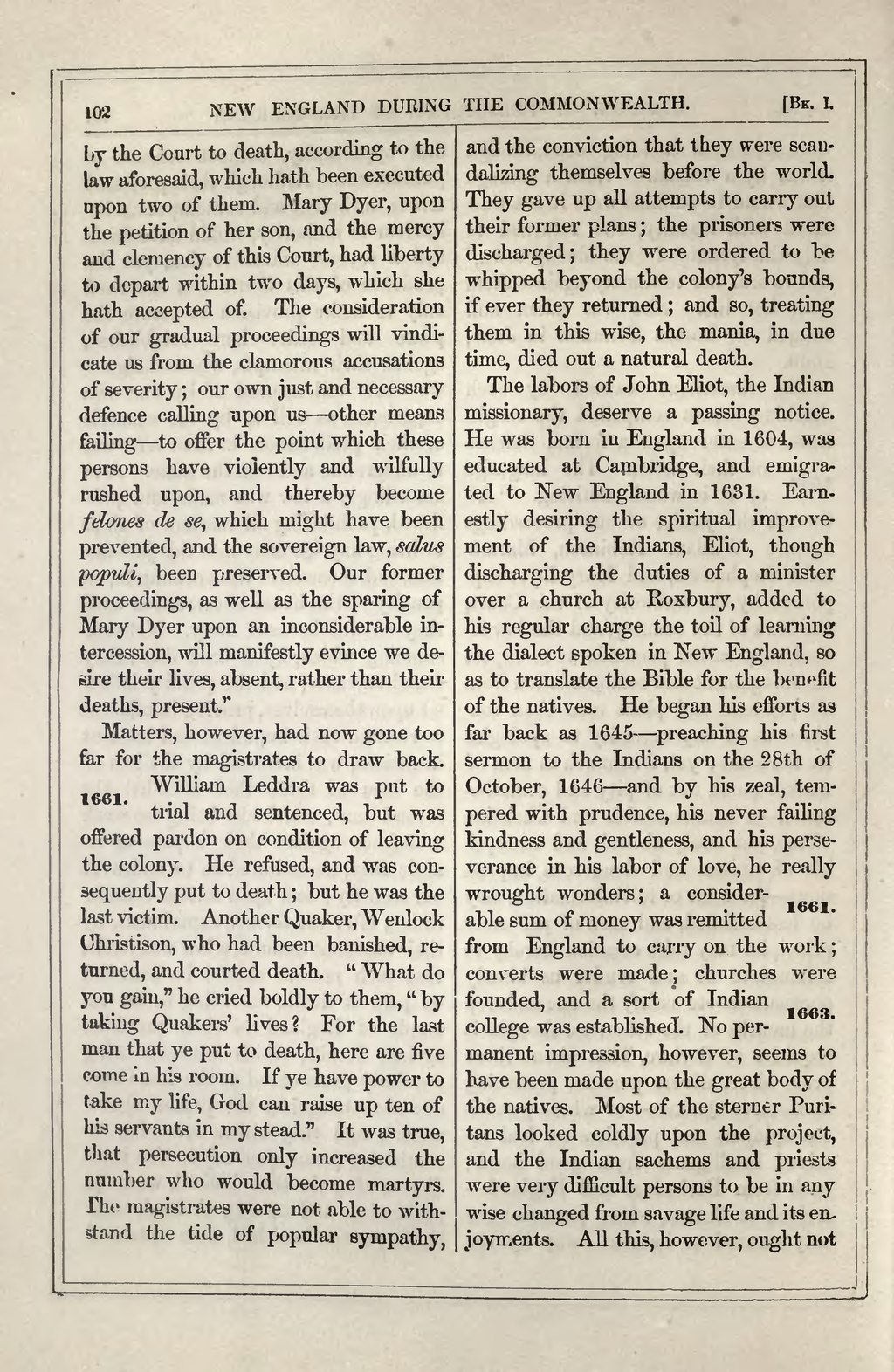by the Court to death, according to the law aforesaid, which hath been executed upon two of them. Mary Dyer, upon the petition of her son, and the mercy and clemency of this Court, had liberty to depart within two days, which she hath accepted of. The consideration of our gradual proceedings will vindicate us from the clamorous accusations of severity; our own just and necessary defence calling upon us—other means failing—to offer the point which these persons have violently and wilfully rushed upon, and thereby become felones de se, which might have been prevented, and the sovereign law, salus populi, been preserved. Our former proceedings, as well as the sparing of Mary Dyer upon an inconsiderable intercession, will manifestly evince we desire their lives, absent, rather than their deaths, present."
Matters, however, had now gone too far for the magistrates to draw back. William Leddra was put to trial and sentenced, but was offered pardon on condition of leaving the colony. He refused, and was consequently put to death; but he was the last victim. Another Quaker, Wenlock Christison, who had been banished, returned, and courted death. "What do you gain," he cried boldly to them, "by taking Quakers' Eves? For the last man that ye put to death, here are five come in his room. If ye have power to take my life, God can raise up ten of hid servants in my stead." It was true, that persecution only increased the number who would become martyrs. The magistrates were not able to withstand the tide of popular sympathy, and the conviction that they were scandalizing themselves before the world. They gave up all attempts to carry out their former plans the prisoners were discharged; they were ordered to be whipped beyond the colony's bounds, if ever they returned; and so, treating them in this wise, the mania, in due time, died out a natural death.
The labors of John Eliot, the Indian missionary, deserve a passing notice. He was born in England in 1604, was educated at Cambridge, and emigrated to New England in 1631. Earnestly desiring the spiritual improvement of the Indians, Eliot, though discharging the duties of a minister over a church at Roxbury, added to his regular charge the toil of learning the dialect spoken in New England, so as to translate the Bible for the benefit of the natives. He began his efforts as far back as 1645—preaching his first sermon to the Indians on the 28th of October, 1646—and by his zeal, tempered with prudence, his never failing kindness and gentleness, and his perseverance in his labor of love, he really wrought wonders; a considerable sum of money was remitted from England to carry on the work; converts were made; churches were founded, and a sort of Indian college was established. No permanent impression, however, seems to have been made upon the great body of the natives. Most of the sterner Puritans looked coldly upon the project, and the Indian sachems and priests were very difficult persons to be in any wise changed from savage life and its enjoyments. All this, however, ought not
